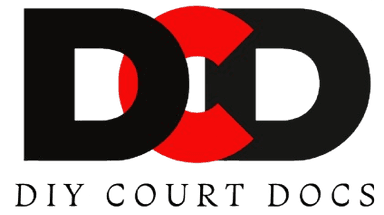your financeS avoid default judgments
Facing a Debt Collection Lawsuit?
Fight back with DIY court docs don’t let a default judgment ruin your finances, creditors are counting on your silence.
Secure your future and assets
Time is critical when it comes to safeguarding your rights. Don’t let delays put your wages, assets, or future at risk. Take proactive steps today to ensure peace of mind and long-term security.
Protect your rights with immediate action.
Avoid potential losses to your income and assets.
Ensure your future remains secure & stress-free.

A Massachusetts judgment lasts 20 years, risking wages, assets, and financial stress
Once you purchase an Answer to Complaint, DIY Court Docs allows you to create your answer to complaint based
on your input. Below are the potential results you may achieve depending on how you answer the questions.
Once you purchase an Answer to Complaint, DIY Court Docs allows you to create your answer to complaint based on your input. Below are the potential results you may achieve depending on how you answer the questions.

Offer of Settlement Pay Less
Propose a lower amount to settle without a judgment against you

Offer of Settlement Pay in Full
Resolve quickly by agreeing to pay the full amount, avoiding a judgment

Validation of Debt Request
Challenge incorrect amounts and request proof, delaying trial by 90 days

Agreement for Judgment No Present Ability to Pay
Acknowledge the debt but confirm your current inability to pay

Agree & Arrange manageable monthly installments
Agreement for Judgment Monthly Payments

Agreement for Judgment Monthly Payments
Fraudulent Debt Claim Response

Why DIY Court Docs?
Protect your rights with confidence. Our expert team simplifies your case every step of the way. Trust us to handle your small claims efficiently and effectively.
DIY Court Docs: Simplify debt resolution with tools designed for you.
DIY Court Docs simplifies debt resolution with tools tailored to your needs. Unlike generic options, it breaks complex tasks into clear, actionable steps, making debt management straightforward and achievable.
Take charge of your finances—DIY Court Docs makes it easy.
DIY Court Docs empowers you to resolve debt confidently by providing intuitive tools and step-by-step guidance. It eliminates guesswork, giving you full control over your financial journey.
Your affordable, stress-free guide to handling debt like a pro.
DIY Court Docs provides straightforward debt resolution tools. Skip expensive solutions—this platform delivers affordable, efficient options for managing financial challenges.
How DIY Court Docs Works
Handling a debt collection lawsuit doesn't have to be overwhelming.

Identify Your Situation
Choose the option that matches your situation.

Start with a FREE Motion to Vacate
If you've defaulted, start with the FREE Motion to Vacate Default Judgment.

Clear Your Default and Take the Next Step
Once your default is cleared, seamlessly transition to purchase an Answer to Complaint for just $57
Choose Your Plan

DIY Court Docs is not a law firm and does not provide legal advice or representation. Our services are for self-help purposes only, and no attorney-client relationship is created. Users are responsible for selecting, completing, and ensuring the compliance of their own documents. Please consult a qualified attorney for legal advice tailored to your specific situation.
Answer to Complaint
$57
Respond effectively to credit card debt lawsuits. Our expertly crafted Answer ensures your response is accurate, professional, and compliant with court requirements.

No contracts - cancel anytime
Motion to Vacate Default Judgment
Free
Overcome default judgments with ease. This FREE document helps you request the court to vacate a judgment entered due to missed appearances or deadlines.

No contracts - cancel anytime
Settlement Agreement
$57
Secure your financial future. This package provides a comprehensive agreement to formalize debt settlements, protecting your interests and ensuring clarity in
your terms.

No contracts - cancel anytime
Frequently Asked Questions
Get answers to common questions about debt collection lawsuits
What are the consequences of not responding to a debt collection lawsuit?
If you ignore a debt collection lawsuit in Massachusetts, the court will likely enter a default judgment in favor of the plaintiff (creditor). Under the Massachusetts Rules of Civil Procedure, this typically occurs if you fail to file an answer or other responsive pleading within 20 days of being served with the complaint. Once a default judgment is entered, the plaintiff can initiate post-judgment enforcement actions like wage garnishment (up to the state's limit of disposable income), bank account levies, or property liens. These actions require specific legal steps, such as filing a Motion for Execution to begin collection. Acting promptly preserves your right to contest the claim, request dismissal, or negotiate.
What is a default judgment, and why should I avoid it?
A default judgment is a court ruling made against a defendant who fails to respond to a lawsuit or appear in court. In Massachusetts, the plaintiff must first request an entry of default under Rule 55 of the Massachusetts Rules of Civil Procedure. The plaintiff can then request a default judgment, either through a hearing for damages or by submitting an affidavit if the amount is liquidated (e.g., specific, undisputed sums). Default judgments allow creditors to collect the debt without further proof, making it essential to avoid this outcome. Filing an answer ensures you have a chance to challenge the claim.
Are options available after missing a court date?
No, even if a default judgment has been entered, defendants may file a Motion to Vacate Default Judgment under Rule 60(b) of the Massachusetts Rules of Civil Procedure. This motion must demonstrate a valid reason, such as lack of proper service, excusable neglect, or other circumstances justifying relief. Massachusetts courts generally prefer to resolve cases on their merits, so they may grant motions filed quickly (typically within a reasonable time, often interpreted as 30–90 days). The motion and required affidavits can be prepared through the available documentation system.
How can debt ownership be verified?
To determine if the debt is legitimately yours, you can file a Request for Validation of Debt under federal law (Fair Debt Collection Practices Act) or request discovery under Massachusetts procedural rules. Creditors must provide proof, such as the original contract, account statements, and documentation of debt ownership if the debt was sold. In small claims cases, Massachusetts courts limit discovery, but you can file a motion requesting discovery orders if needed. Disputing inaccuracies early in the process may weaken the plaintiff's case or lead to dismissal.
What documentation is available for settlement discussions?
Yes, settling out of court often involves drafting a Settlement Agreement or payment plan. Massachusetts small claims courts encourage parties to resolve disputes informally and may even provide mediation services. DIY Court Docs prepares written proposals for settlement that you can submit directly to the plaintiff or their attorney. If a settlement is reached, it's essential to document the agreement in writing, ensuring that the plaintiff agrees to dismiss the lawsuit or acknowledge payment in full. Filing the agreement with the court protects you from future claims.
What options exist for current inability to pay?
If you cannot afford to pay, Massachusetts courts consider financial hardship as part of the enforcement process. Certain income and assets are exempt from collection under state law, such as unemployment benefits, Social Security, and a portion of wages. In court, you may present evidence of financial hardship, such as income statements, to negotiate a manageable payment plan. DIY Court Docs can help you draft pleadings that highlight your financial situation, file motions to request installment payments, or assert your exemptions to protect essential resources.
What is debt validation and its significance?
Validation of debt is your legal right to demand the creditor provide documentation verifying that the debt is valid. This includes the original agreement, a record of transactions, and proof that the plaintiff owns the debt if it was assigned or purchased. In Massachusetts, this is particularly important for cases involving debt buyers, who often lack proper documentation. Failure to validate the debt can be a defense under Rule 8(c), which requires affirmative defenses like lack of standing to be raised in your answer. DIY Court Docs helps you request this validation or assert your defenses clearly.
Reopening Your Case After a Missed Court Date
A Motion to Vacate Default Judgment provides an opportunity to address a standing judgment in Massachusetts courts. The form includes spaces for all relevant details needed by the court system.
© 2024 DIY Court Docs. All rights reserved.Full Width
DIY Court Docs is not a law firm and does not provide legal advice or representation. Our services are for self-help purposes only, and no attorney-client relationship is created. Users are responsible for selecting, completing, and ensuring the compliance of their own documents. Please consult a qualified attorney for legal advice tailored to your specific situation.
